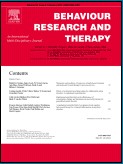
你喜欢照镜子吗?
其实,不少人喜欢照镜子,有人因为爱美,有人因为无聊,还有人觉得自己不够漂亮,希望改变。
近日,英国研究人员称,无论理由如何,长时间照镜子都会给人带来压力。
英国伦敦精神病学研究所心理学家说,一些人患有身体畸形恐惧症(BDD)。这类患者强烈认为身体某部分不好看并夸大这些“缺陷”。但在别人看来,他们可能没有什么地方跟别人不一样。
这种疾病的患病原因不明,不过大多数患者有抑郁症史。不少身体畸形恐惧症患者会画很重的妆或穿很多衣服,以掩盖“缺陷”。同时,他们还会不停照镜子,以防“缺陷”被人发现。
为研究照镜子对这些人的影响,精神病学研究所研究人员招募25名身体畸形恐惧症患者和25名健康人士,男女各一半,让他们接受两次测试。第一次测试时,研究人员让他们照镜子25秒,第二次照至少10分钟。两次测试前后,志愿者都要填写问卷,让研究人员评估他们对外貌的满意程度。
研究人员先前猜测,照镜子会让身体畸形恐惧症患者感觉焦虑,即使只照25秒也是如此。测试结果证实这一想法。
不过,研究人员没想到的是,健康志愿者照镜子超过10分钟后,也开始出现焦虑和压力症状。
研究人员说,每个人都喜欢时不时照一下镜子,不过,大多数心理健康的人不会照那么长时间照镜子,“分析”自己的容貌。
《每日邮报》于2月8日引述研究人员的话报道:“没有身体畸形恐惧症的人短时间照镜子不会感受到压力,但长时间照则不行。”
利兹大学医学院的安德鲁•希尔说,类似研究显示,不经常照镜子的心理健康人士会把注意力集中在自己喜欢的身体部位上,但那些有心理问题的人会把注意力集中在不喜欢的部位。
但是,如果照镜子时间太长,健康人士就会把关注点转移到不满的部位。希尔说:“长时间照镜子可能不是一件好事。”
先前有关照镜子的一项调查表明,英国女性平均每天照镜子38次,男性18次。女性对自己在镜子中的形象更挑剔,80%有所不满。

Mirror gazing in body dysmorphic disorder and healthy controls: Effects of duration of gazing
Katja Windheim , David Veale, Martin Anson
Cognitive-behavioural models of body dysmorphic disorder (BDD) suggest that mirrors can act as a trigger for individuals with BDD, resulting in a specific mode of cognitive processing, characterised by an increase in self-focussed attention and associated distress. The aim of the current study was to investigate these factors experimentally by exposing participants with BDD (n = 25) and without BDD (n = 25) to a mirror in a controlled setting. An additional aim was to ascertain the role of duration of mirror gazing in the maintenance of distress and self-consciousness by manipulating the length of gazing (short check vs. long gazing). Findings demonstrated that contrary to what was predicted, not only participants with BDD, but also those without BDD experienced an increase in distress and self-focused attention upon exposure to the mirror. In addition, people without BDD, unlike those with BDD, experienced more distress when looking in the mirror for a long period of time as opposed to a short period of time. This lends some support to the idea that, for people with BDD, gazing in a mirror, regardless of duration, might act as an immediate trigger for an abnormal mode of processing and associated distress, and that this association has developed from past excessive mirror gazing. Further theoretical implications of these findings, as well as subsidiary research questions relating to additional cognitive factors are discussed.
文献链接:https://www.sciencedirect.com/science/article/pii/S000579671100091X








